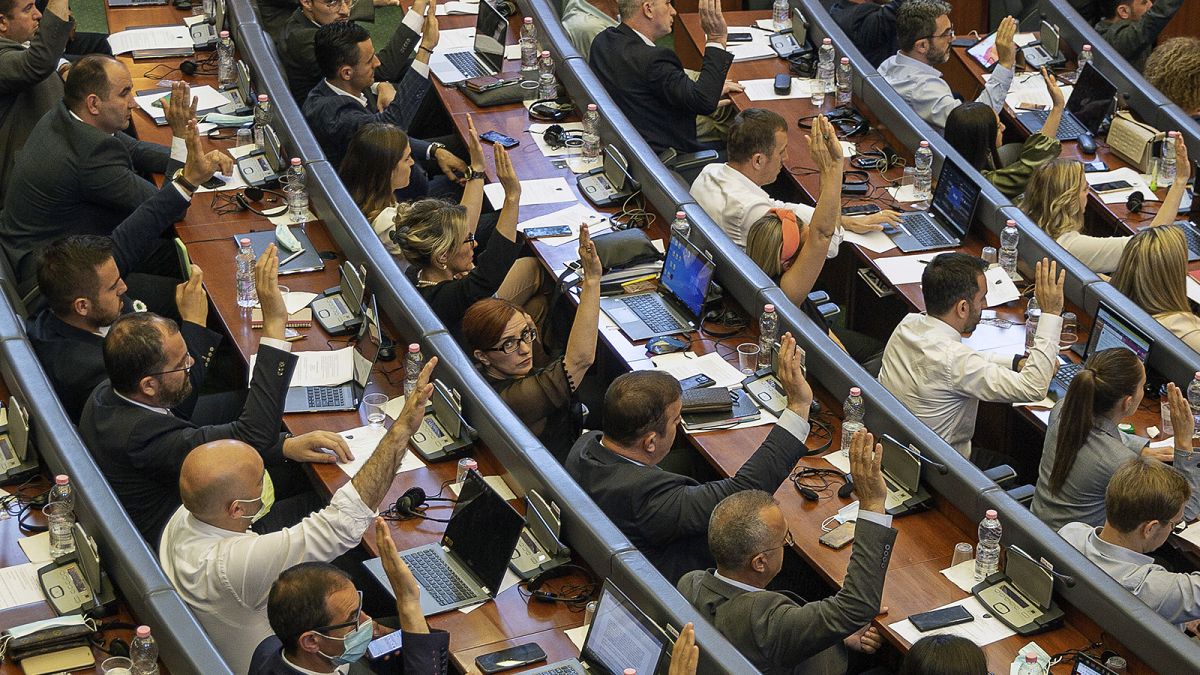The upcoming elections are expected to be a key test for Prime Minister Albin Kurti, whose governing party won in a landslide supermajority in 2021.
Kosovo’s central election commission on Monday denied the main Serb minority party’s request to run in the upcoming February elections after members of the verification body highlighted “statements made against Kosovo’s statehood”.
“I have my reservations and I need to express them,” said Sami Kurteshi, a member of the 11-person body that certifies the applications of all the parties that will run in the 9 February parliamentary elections.
Kurteshi and other members of the body said that while Srpska Lista, the leading ethnic Serb minority party in the country, was presenting its election platform, “it never mentioned the Republic of Kosovo, but use Kosovo and Metohija,” a term meant to relegate the country that declared independence in 2008 to regional status within Serbia.
“They never say ‘long live Kosovo’ but always repeat ‘long live Serbia’,” he continued.
Srpska Lista is running for the majority of 20 reserved minority seats in Kosovo’s legislature. Due to the country’s multiethnic character, these seats also include significant protections and representation for the minority, which is thought to comprise about 5% of the population.
Election commission officials also said that the ethnic Serb party maintains close ties with Serbian President Aleksandar Vučić and other Serb leaders who also refuse to recognise Kosovo’s independence.
There was no immediate reaction from Srpska Lista.
The party has the right to submit an appeal to the Central Election Commission’s panel for appeals and objections within 24 hours. If the panel confirms the CEC’s decision, Srpska Lista has one more option, namely, to file an appeal with the Supreme Court within 24 hours.
The move may further aggravate the already tense ties between Kosovo and Serbia, despite efforts by the international community to normalise them.
The upcoming elections are expected to be a key test for Prime Minister Albin Kurti, whose governing party won in a landslide supermajority in 2021.
Kosovo was a Serbian province until NATO’s 78-day bombing campaign in 1999 ended a conflict between Belgrade government forces and ethnic Albanian separatists in Kosovo. The conflict left about 11,400 dead, mainly ethnic Albanians, and pushed Serbian forces out.
Kosovo proclaimed independence in 2008, backed by key Western powers such as the UK, the US and almost all EU member states.
Meanwhile, Belgrade refuses to recognise Kosovo’s independence and still considers it as its province, and has a major influence on the ethnic Serb minority living there.

